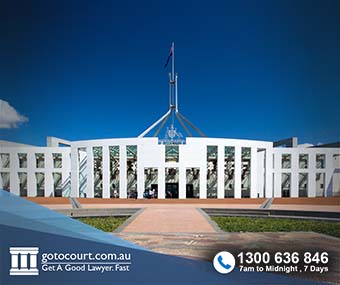Call our lawyers
now
or,
have our lawyers
call you
Testamentary Capacity and Dying Intestate (Qld)
Updated on Feb 25, 2018 • 8 min read • 337 views • Copy Link
Testamentary Capacity and Dying Intestate (Qld)
The Succession Act 1981 (Qld) governs the principles in relation to making a Will in Queensland, including when a person lacks the testamentary capacity to do so themselves. The provisions of other legislation such as the Power of Attorney Act 1988 (Qld) and the Trusts Act 1973 (Qld) may also operate when dealing with more complex estates.
The importance of making a will before a person loses the capacity to do so cannot be overstated. Dying without a will can be expensive and have long-term negative effects on those close to the deceased.
Requirements of a valid will
There are strict requirements for making a will. If these requirements are not met, the will may be found invalid if challenged in court. The person who makes the will is referred to as the ‘Testator’.
A will must be in writing and must be signed by the person making the will. The will must also be signed by two (2) or more witnesses who are all present at the same time the will is signed. ‘Signing a will’ is also known as ‘executing’ a will. Usually, a person must be over the age of 18 years to make a valid will. However, where a person is under 18 years, and a will is made in contemplation of marriage, the will becomes effective when the marriage takes place.
Testamentary capacity
The term ‘testamentary capacity’ refers to the mental capacity of the testator to properly understand the document they are creating and executing. A person will not have the testamentary capacity to make a will if they lack the mental understanding that what they are creating, or agreeing to, is in fact a will that provides for the disposal of their assets after their death. This typically occurs where the person is elderly or suffering from mental deterioration as a result of illnesses such as Alzheimer’s Disease.
A lack of testamentary capacity can arise under several circumstances. As a person’s capacity is determined by their mental state, a medical professional is required to determine if the person has the ‘capacity’ to understand and approve the contents of a Will. If there is any doubt concerning a person’s ‘capacity’ they should always be referred to a medical professional before creating a will. A solicitor may be able to flag when testamentary capacity might become an issue, but the actual assessment of the person’s capacity must be carried out by a medical professional, usually a psychologist.
Where a person is deemed to lack testamentary capacity, the court can alter or revoke an existing will, or authorise a will to be made on the person’s behalf. The question the court is required to consider in such cases is whether the proposed will is, or may be, a will that the person lacking capacity would have made if they had testamentary capacity.
Re APB, ex parte Sheehy
In the Supreme Court matter of Re APB, ex parte Sheehy, an application was made to the Court to make a will for a 91-year-old male who had assets in the amount of $70,000,000, as he seemingly lacked the capacity to make it himself. The testator, APB, had three adult children, several grandchildren, and some friends who had an interest in the estate. There was evidence that the testator had been befriended by certain people when he was quite elderly. It was alleged that these people had taken the testator to a solicitor who purported to revoke his power of attorney and make a new will.
An application was later filed with the Queensland Civil and Administrative Tribunal seeking a declaration that the testator lacked the capacity to make the will at the time it was created. The application was successful, and a ‘litigation guardian’ was appointed by the Court. A ‘litigation guardian’ is a person appointed to ensure that the legal interests of an incapacitated person are protected by representing them in any court proceedings. A further application was brought before the court to authorise the making of a will on behalf of the person.
The court was of the view that the more complex a person’s affairs, the more cognitive function is required for them to have capacity. The testator, APB, accused his children of ‘waiting for him to die’ and argued that he did, in fact, have the capacity to make his will and did not want his children to receive any benefit from it. There was evidence that when the testator did possess capacity he had created several wills which provided for his children. However, the subsequent will made when he lacked capacity did not provide for his children.
With respect to that matter, the court took into account the person’s previous wills as evidence of his intentions prior to losing capacity. Therefore, it determined that his children should receive a share of the estate. Although the person concerned expressed his current wishes to the court, he was deemed to lack capacity so his intentions did not carry the same weight as those of someone with testamentary capacity.
There was further evidence that, when making one particular will in 2012 (when the testator did have testamentary capacity), he had provided a codicil with the will (a ‘Memorandum of Wishes’) that explained why he distributed his assets in that particular way. Those distributions were not reflected in the later will made after he lacked the testamentary capacity. Instead, the testator’s newly-acquired friends received a significant portion of the estate.
The court made a determination that, if the testator had testamentary capacity, he would have realised that his ‘friends’ had taken advantage of his state and, accordingly, held that they should not receive the portion of the estate allocated in the will under challenge. The court, therefore, used its power to authorise the proposed will and the testator’s children received the majority of the estate. The friends received a small pecuniary amount only.
This case clearly shows the importance of protecting elderly or incapacitated family members from undue influence by those who would seek to benefit from their condition. Where there is an issue of capacity, and a subsequent will is drafted, often only expensive litigation can create a satisfactory outcome for all parties.
What happens when a person dies intestate (without a will)?
In the event that a person dies without leaving a valid will, it is known as dying ‘intestate’. Dying intestate can result in significant emotional and financial stress for those who may have claims to the estate. Even when a person who does not own any substantial assets, it is important to have a valid will for a number of reasons.
Making one’s wishes known
A will not only provides for the distribution of any assets but can also make directions as to the following:
- How the deceased wishes their body to be dealt with;
- How the deceased wishes any minor children to be cared for;
- How the deceased wishes any remaining pets to be dealt with.
Avoiding conflict
The death of a loved one can bring out the good and the bad in people, particularly where there are large asset portfolios at stake. Many people who find themselves in the position of arguing the intentions of a person who has died intestate will find that family members with whom they have had good relations become alienated from each other, and they each behave in ways surprising to the other.
One example of this occurred where a person’s mother died suddenly without leaving a Will. It was arranged for the cremation of the body to be organised by one of the deceased’s children. When that person applied for the cremation of the body they provided instructions to the coroner as to how the ashes were to be disposed of, and the coroner was obliged to act on those instructions.
The other children were not consulted on this last matter and it subsequently emerged that those instructions were contrary to the wishes of the other siblings. This, therefore, prevented the remaining siblings from retaining any part of their mother’s ashes or to scatter the ashes in a place they mutually agreed as appropriate.
This situation could have been avoided if the deceased had created a will with instructions in relation to the disposal of her body. Section 7 of the Cremations Act 2003 (Qld) specifically provides that such wishes must be followed where it is reasonably possible to do so.
If you require legal advice or representation in relation to a wills and estates matter or in any other legal matter, please contact Go To Court Lawyers.

Affordable Lawyers
Our Go To Court Lawyers will assist you in all areas of law. We specialise in providing legal advice urgently – at the time when you need it most. If you need a lawyer right now, today, we can help you – no matter where you are in Australia.How It Works











1. You speak directly to a lawyer
When you call the Go To Court Legal Hotline, you will be connected directly to a lawyer, every time.


2. Get your legal situation assessed
We determine the best way forward in your legal matter, free of charge. If you want to go ahead and book a face-to-face appointment, we will connect you with a specialist in your local area.


3. We arrange everything as needed
If you want to go ahead and book a fact-to-face appointment, we will connect you with a specialist in your local area no matter where you are and even at very short notice.













